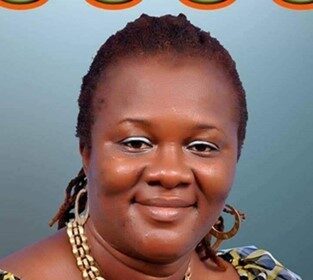After Taylor left Liberia in 2003, the National Transitional Government (NTG), headed by Liberian businessman Gyude Bryant and supported by United Nations peacekeeping troops, was established and ruled until a new administration was democratically elected and installed. With the assistance of the UN, presidential elections were held in late 2005, and Ellen Johnson Sirleaf of the Unity Party (UP) defeated former football star George Weah of the Congress for Democratic Change (CDC) in the second round of polling. She became the first woman to be elected head of state in Africa. Sirleaf focused on rebuilding the country’s economy and infrastructure, both of which had been devastated by decades of conflict and instability. Liberia made progress, as it erased all of its considerable debt by the end of 2010 and Sirleaf secured millions of dollars of foreign investment in the country. She also worked to promote unity and reconciliation within the country. To that end, a Truth and Reconciliation Commission was established in 2006. Sirleaf also addressed the culture of corruption that had been rampant for some time: she fired the entire staff of the Ministry of Finance and promised to investigate and prosecute anyone responsible for graft.
In December 2007 Bryant, the former NTG head, was arrested for failing to appear in court to face corruption charges stemming from his time as leader of the transitional government; he was accused of embezzling more than $1 million, a charge that he vehemently denied. Bryant was found not guilty in 2009. In October 2008 Taylor’s son, Charles (Chuckie) Taylor, Jr., was convicted in a U.S. court on charges of torture and related war crimes; he was sentenced in January 2009 to 97 years in prison.
2011 elections

The run-up to Liberia’s next round of presidential and legislative elections, scheduled for October 11, 2011, was eventful. Four proposed changes to the constitution, three of which would have bearing on the upcoming elections, were put to a referendum in August 2011 but did not garner enough votes to pass. The failure of one of the proposals, which would have reduced the residency requirement of presidential and vice presidential candidates from 10 to 5 years, led to a small opposition group challenging in court the eligibility of several of the candidates, including Sirleaf, who because of Liberia’s civil war had not resided in the country for the requisite 10 years. The challenge led to the Supreme Court briefly suspending campaigning activities by the candidates. On October 5, 2011, the Supreme Court dismissed the challenge, noting that the writers of the 1986 constitution could not have anticipated that years of conflict would force many Liberians to live outside the country. Two days later another preelection controversy arose when Sirleaf won the Nobel Peace Prize. Other candidates complained that the Nobel Committee was interfering with Liberian politics by awarding the prize so close to the election.


Sixteen candidates stood in the October 11, 2011, presidential election. Sirleaf and Winston Tubman, who was running with Weah as his vice presidential candidate on the CDC ticket, emerged as the two top candidates, winning almost 44 percent and 33 percent of the vote, respectively. As neither candidate was able to garner more than 50 percent of the votes, the two advanced to a runoff election scheduled for November 8. Despite the October poll’s being praised as free and fair by several international observation groups, some opposition parties, including the CDC, alleged that there were instances of voting irregularities. Less than a week before the runoff election, Tubman announced that he would not participate and asked his supporters to boycott the election. A further complication developed the day before the runoff election, when a CDC rally devolved into violence after police attempted to disperse the demonstrators, killing at least two people, injuring others, and alarming many that the country might be descending into a spate of election-related violence. The November 8 election proceeded as planned, though, and Sirleaf was reelected with more than 90 percent of the vote—although the voter turnout was significantly lower than that of the first round, as many Liberians had heeded Tubman’s call for a boycott or had stayed at home to avoid any chance of violence.









